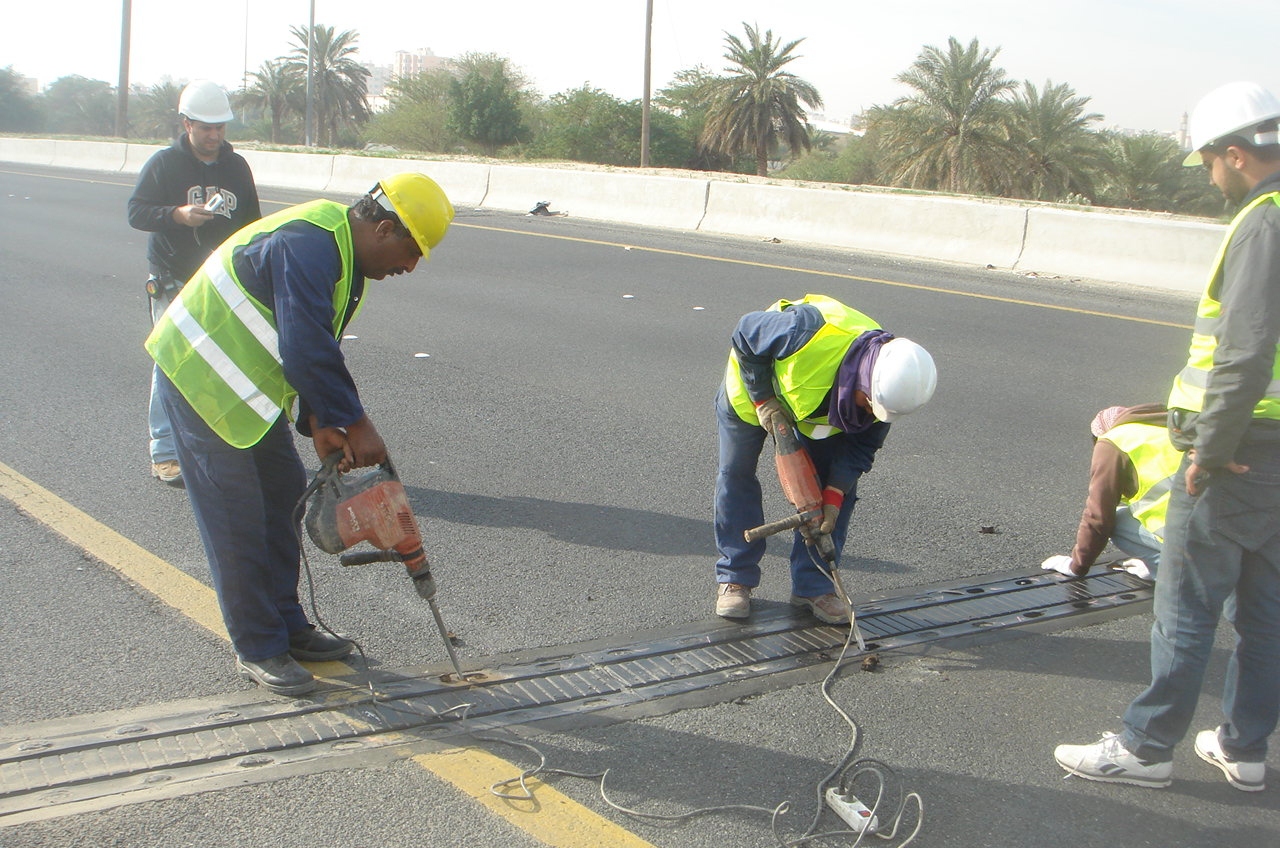 Apart from periodic sandstorms and rain, road conditions and weather are favorable most of the year, but drivers must remain on the defensive and alert to the hazards posed by others that neglect to yield in merges, cut across lanes to exit, drive aggressively and at excessive rates of speed, pass on shoulders, and often operate without headlights at night.
Apart from periodic sandstorms and rain, road conditions and weather are favorable most of the year, but drivers must remain on the defensive and alert to the hazards posed by others that neglect to yield in merges, cut across lanes to exit, drive aggressively and at excessive rates of speed, pass on shoulders, and often operate without headlights at night.
The most dangerous daily threat that residents face comes from driving. Speed is the primary cause for traffic fatalities. Kuwait has an excellent highway system, but many drivers drive in excess of the posted speed limits and weave through traffic at high rates of speed; the danger posed by these high-speed drivers is compounded by many others who drive well below the speed limit across all lanes of traffic, increasing the chances for accidents.
Check the interior and exterior of your vehicle prior to approaching or entering it. Look for any suspicious items. Do not leave your valuables in plain view in your vehicle, hotel room, or elsewhere.
A general rule to follow is to avoid driving in the number one (far left) lane on highways due to the prevalence of high-speed drivers. These number one lane drivers may exhibit aggressive behavior (by flashing their headlights rapidly or tailgating in order to get the slower drivers to move to the right) if blocked. Night driving is particularly dangerous because some drivers do not turn on their headlights.
Road rage, pursuit, extremely aggressive and reckless driving, and vehicle gamesmanship — in which vehicles play a form of high-speed cat and mouse on the freeways — often end in disaster when a vehicle is forced off the road or has a collision with another vehicle on the crowded highways. It is quite common to see remnants of horrific traffic accidents, usually in the form of a mangled car chassis, alongside the highway. Individuals are advised to avoid confrontations, refrain from making hand gestures or eye contact with other drivers, and to move away from angry, threatening, or aggressive persons. Never lead such persons back to your home or to a secluded area.
Public intoxication and driving while under the influence of alcohol are treated as serious offenses, and because alcohol is illegal, any trace of alcohol found in the blood is unlawful. Offenders will be detained, arrested, and if found guilty, serve a prison sentence, pay heavy fines, and/or be deported.
If involved in a motor vehicle accident, Kuwaiti law mandates that the individuals immediately notify the police and file a report. There are no Good Samaritan laws, so assisting at the scene of an accident may expose the responder to liability. Kuwaiti nationals are often perceived to be afforded preferential treatment by the police, including when the police are called to resolve a traffic accident or criminal matter.
The MOI has taken proactive steps toward increased traffic law enforcement and has begun implementing traffic safety measures (camera/radar systems) and delivering public awareness campaigns. The use of seat belts is mandatory. The use of handheld electronic devices while driving is illegal, but the law is frequently ignored. Non-payment of traffic and parking fines may result in travel bans for individuals. Police checkpoints are not unusual. Uniformed and plainclothes police have the authority to make traffic stops but must identify themselves with police identification credentials printed in Arabic and English. The RSO advises individuals to remain in their own vehicles with the doors locked and to lower the window only enough to receive the person’s police identification. While checking the credentials as best as possible, individuals are advised to use their mobile phone to alert his/her sponsor/trusted person of the situation. Ask the sponsor/trusted person to meet them. U.S. citizens should inform the officer of their nationality. Individuals are advised against riding in police vehicles but if instructed, should agree only to follow the officer in their own vehicle to a police station. Before going to the police station, individuals should request the officer to specify the name of the police station, and keep the mobile phone connected so the sponsor/trusted person can know and hear the destination. Lastly, anyone stopped by the police should relay the license plate number, the make, model, and color of the officer’s vehicle to his/her sponsor/trusted person on the phone, if possible.
Source : OSAC
Kuwait News
[catlist name=Expat numberposts=20 pagination=yes instance=3]


Leave a Reply